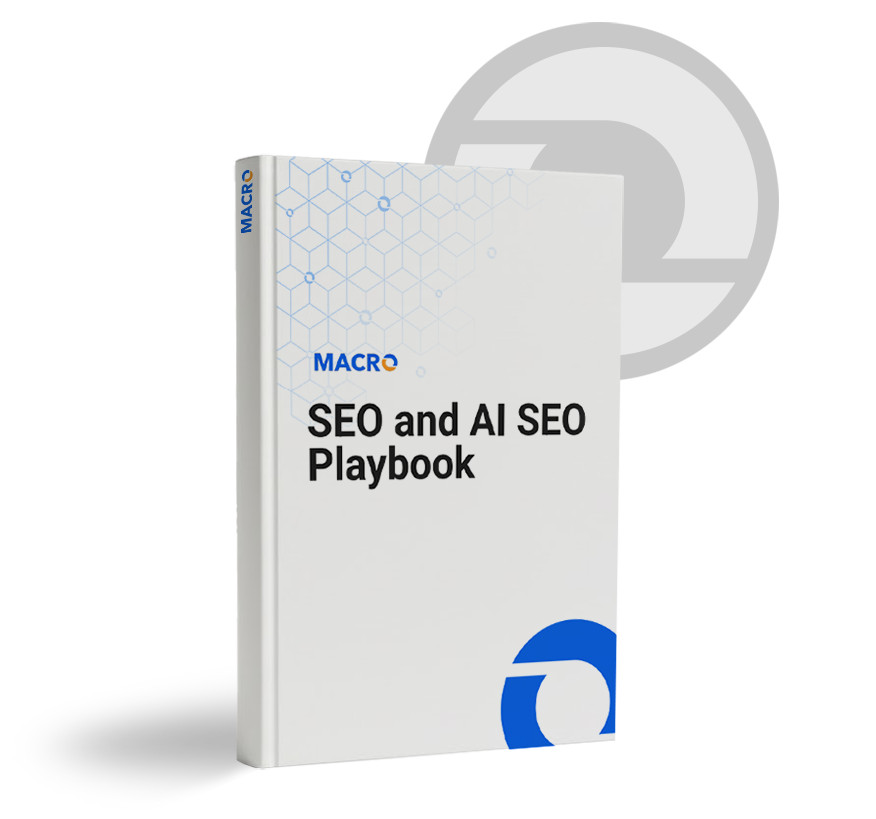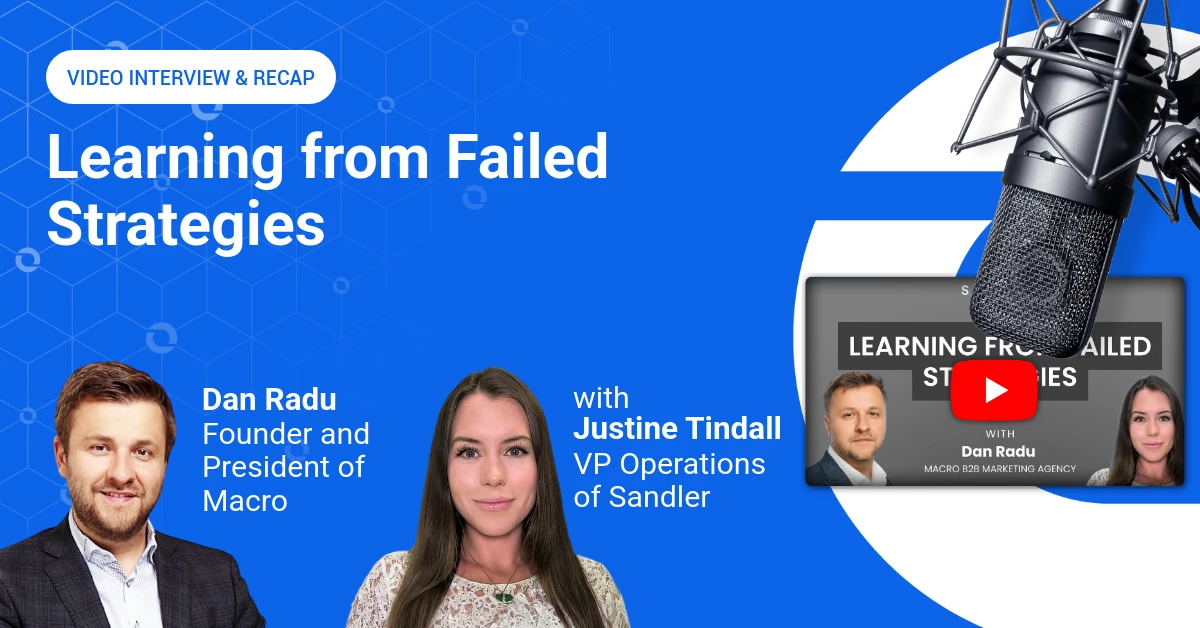At Macro, we’re helping B2B brands stay visible and competitive in today’s evolving search landscape. In this article, we’ll break down the key SEO foundations that still matter, and an AI action plan you can go through right now to strengthen your digital reach.
Why SEO Still Matters, Especially in an AI World
Even as AI reshapes how people search, SEO remains the foundation of online visibility. AI systems like ChatGPT, Perplexity, and Google’s new AI Overviews rely on existing top-ranking pages to generate answers.
In fact, studies show that nearly 70% of AI-generated results come from the top 10 Google rankings. (Source: Surfer SEO)
That means if your content already ranks well, you’re more likely to be cited or mentioned by AI. Regular good SEO naturally supports what we might call AI SEO or Generative Engine Optimization (GEO) — the practice of optimizing for AI-driven search tools.
In short: AI didn’t kill SEO, it evolved it.
SEO Basics Still Win
Most of the SEO fundamentals still apply:
1. On-Page SEO
Make your content readable and structured for both humans and machines. Use:
- Clear headers and subheaders (H1, H2)
- Bullet points and tables
- FAQs that answer specific user intents
- Internal links between related pages
2. Technical SEO
Ensure your site is easy to crawl and fast to load. Focus on:
- Mobile optimization and site speed
- Proper schema markup (structured data)
- Clean URL structure and canonical tags
- Updated sitemap and robots.txt
3. Off-Page SEO
Authority still matters. Build credibility through:
- Backlinks from reputable industry sites
- Mentions on professional networks like LinkedIn or Reddit
- Guest contributions and collaborations
Remember: In the AI era, mentions are as valuable as backlinks. AI models often reference brands that are mentioned without direct links to your site.
How B2B Companies Can Optimize for AI-Driven Search
AI tools like ChatGPT, Gemini, and Perplexity aren’t replacing search, they’re adding a conversational layer on top. Here’s how to make sure you show up in those conversations:
- Focus on clarity and authority. Write content that directly answers user questions, backed by trustworthy data or examples.
- Add structured data. Schema markup helps AI and search engines understand your page.
- Use “answer engineering.” Craft content around real user queries, like “how to migrate ERP data securely” or “best SaaS integration tools for SMBs.”
- Keep your content fresh. AI favors recent, updated material — review key pages quarterly.
- Target “bottom of funnel” content. Many AI answers cite niche, decision-stage content (e.g., comparisons, checklists, implementation guides).
The New SEO Mindset: From Ranking to Citing
In the classic SEO game, the goal was to rank first. In the AI-SEO era, the goal is to be cited, mentioned or quoted by AI when they summarize web results.
That shift rewards brands with:
- Topical Clusters (consistent content around specific themes)
- Credibility (EEAT: Experience, Expertise, Authoritativeness, Trustworthiness)
- Semantic structure (content that’s easy for machines to parse)
So instead of chasing loose keywords, focus on becoming the go-to expert in your B2B niche. That’s what AI engines are looking for when choosing which content to quote or summarize.
Your B2B SEO + AI Action Plan
Here’s a simplified version of the action plan we shared in our webinar, adapted for any B2B organization:
1. Run a Health Audit
Clean up broken links, duplicate content, missing alt text, or redirect chains.
2. Optimize Your Pages
Add tables, FAQs, bullet lists, and structured markup (schema.org).
3. Strengthen Your Backlink & Mention Strategy
Contribute thought content to credible blogs, communities, and publications. Offer guest posts.
4. Add Bottom-of-Funnel (BoFu) Content
Create product comparisons, case studies, and detailed “how-to” guides.
5. Grab the Low-Hanging Fruit
Claim your Google Business Profile, stay active on LinkedIn, Reddit, and YouTube. LLMs love these public sources.
The takeaway: “Good SEO” is the best “AI SEO.”
Download your Free SEO and AI SEO Playbook



![Client looking for info on an LLM through his laptop. An LLM window reads "Who is your [brand name]? Are they recommended?"](https://cdn.prod.website-files.com/6508524d5bb8cefde73b74d6/69172aa351ad0b0dec5a5057_SeoandAISEO-MainImage-1200x628px.png)


